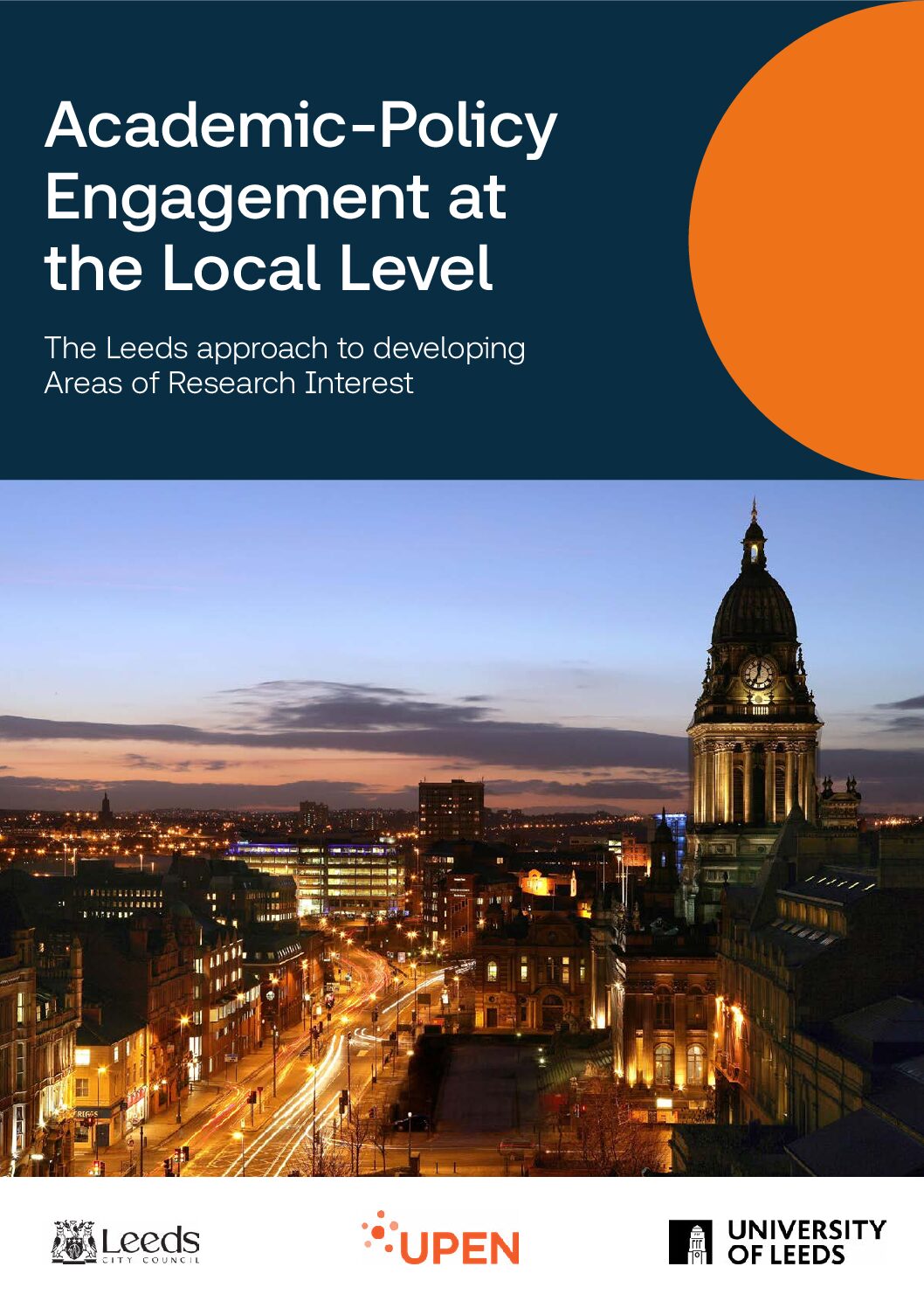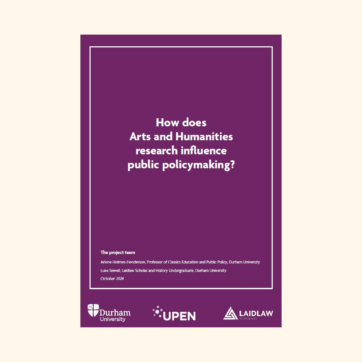CAPE Challenge Award funding enabled Vicky Kemp and her research team at the University of Nottingham to use their extensive electronic police custody records dataset in a collaboration with the Ministry of Justice.
In a distinctive approach, the Ministry of Justice sought an analysis of the data curated by Vicky’s team to address evidence gaps and inform the Ministry’s response to the recommendations of an independent review of criminal legal aid. The records helped establish a solid foundation of data and evidence for supporting policy and analytical efforts. In this case study, Vicky discusses the pivotal role of co-production and collaboration in this project and explains how the results will contribute to shaping future policy decisions concerning criminal legal aid in police custody.
Research Team: Dr Vicky Kemp – CAPE Challenge Award Principal Investigator and Principal Research Fellow, School of Law, University of Nottingham. Hope Kent and Professor Stephen Farrall, University of Nottingham, are the analysts involved in this project.
Disclaimer: The views expressed are those of the authors and are not necessarily shared by the Ministry of Justice (nor do they represent Government policy).
The Policy Challenge
In December 2021, the Ministry of Justice (MoJ) published Lord Bellamy’s Criminal Legal Aid Review (CLAIR). I served as a member of the Lord Chancellor’s Expert and Advisory Panel on CLAIR, and as mentioned in the Review, my research findings led to several recommendations concerning the police station phase of the criminal justice system. In response to CLAIR, the Government has raised the fee for police station legal advice with the aim of fostering a more coordinated approach, emphasising youth justice, and promoting a presumption of legal advice for child suspects during detention.
Since the police are not required to report key data held on electronic custody records, the MoJ have access to only limited information from which to monitor changes to police station legal advice. As the Principal Investigator of a Nuffield-funded study, I collaborated with Hope Kent, our data analyst, to compile a comprehensive dataset comprising more than 50,000 electronic custody records. These records were gathered from individuals detained during the months of March and September in 2019, 2020, and 2021, spanning eight different police forces. This dataset represents the most extensive sample analysed to date in our examination of legal protections for child suspects detained by the police. Our analysis allowed us to examine differences in the volume of children held in custody, the take-up of legal advice, the length of detention and case outcomes.
Having obtained this dataset, the policy challenge was to work with MoJ to develop a data and evidence base to support policy and analytical work. Using the CAPE Challenge Award, we collaborated with MoJ policy officers and analysts to identify new areas for analysis. We were also able to bring Professor Stephen Farrall into the team, a specialist who has extensive experience of analysing administrative data from repeat cross-sectional and longitudinal datasets. With his involvement, we were able to model the data, to test which factors were statistically significant in relation to requests for legal advice and when strip searches were undertaken.
Co-production research in practice
Throughout the CAPE Challenge Award project, we met regularly with policy officers and analysts in MoJ to collaboratively determine the most appropriate data analysis and modelling approaches to help inform criminal legal aid policy and practice, and to provide information on the efficacy of legal safeguards for people arrested and detained by the police.
It was helpful to discuss some of the limitations found within the data, such as gaps in the information recorded, and the poor quality of some of the data with MoJ. For example, while the police electronically recorded if legal advice was requested, there was no data on whether this advice was received by those in custody. Following the COVID-19 pandemic, lawyers sometimes provide remote legal advice. This development has prompted the need for a revised approach to accommodate varying fee structures based on whether the lawyer was physically present during the police interview. Without MoJ’s involvement, we would not have been able to explore variations in the data in such detail depending on whether legal advice was requested.
Similarly, understanding the ethnicity of those detained is important, but this is complicated by variations in ethnic categories used not only among different police forces but also in the methods of recording ethnicity, whether based on the suspect’s self-definition or recorded by the custody officer. It also would be beneficial for electronic custody records to include information on the type of appropriate adult involved (family member or agency) when dealing with a looked after child.
Support from the CAPE Challenge Award fund allowed us to extend our analysis to include areas of interest to MoJ, particularly following changes to police station legal advice. This has not only extended our analysis to include vulnerable adults and adults but also allowed us to consider interrelationships between variables, such as the case outcomes for those who requested legal advice or not, and differences in the length of time people were detained depending on whether or not a lawyer was involved. We were also able to cross-reference findings so that we could identify differences based on the age, gender and ethnicity of people detained by the police.
Reporting on their experience of the CAPE Challenge, MoJ analysts stated:
“We found the collaboration approach to be a constructive way of working and we welcomed the CAPE Policy Fellow’s openness, particularly when sharing data and findings. Regular catch-ups also helped to ensure that data interpretation and presentation of the findings were resolved at the earliest point.”
Outcomes of the project
Findings arising out of our collaboration with MoJ are aimed at policymakers and practitioners as they consider changes made to criminal legal aid following Government’s response to CLAIR. Alongside our final report arising out of the Nuffield study into child suspects, published in May 2023, we have published a separate report based on this collaboration: ‘Analysis of electronic custody record data to examine the efficacy of legal safeguards on suspects detained and questioned by the police in England and Wales’.
As a result of this collaborative project, the research team have developed an excellent relationship with MoJ. Looking to the future, we will continue this collaboration with a view to encouraging MoJ and the Home Office to routinely collect and report on police custody record data in relation to police powers and suspects legal rights under the Police and Criminal Evidence Act 1984.
About CAPE
Capabilities in Academic Policy Engagement (CAPE) is a knowledge exchange and research project funded by Research England from 2020-2024, which has been exploring how to support effective and sustained engagement between academics and policy professionals. The project is a partnership between UCL and the Universities of Cambridge, Manchester, Northumbria and Nottingham in collaboration with the Government Office for Science, the Parliamentary Office for Science and Technology, Nesta and the Transforming Evidence Hub.
About CAPE case studies
CAPE case studies have been written by academics and policy partners on the CAPE project as reflections on their experience of undertaking academic policy engagement. The case studies include explorations of academic placements in policy organisations and vice versa (called Policy Fellowships), partnerships between universities and policy organisations, and collaborative projects between academics and policy partners.


